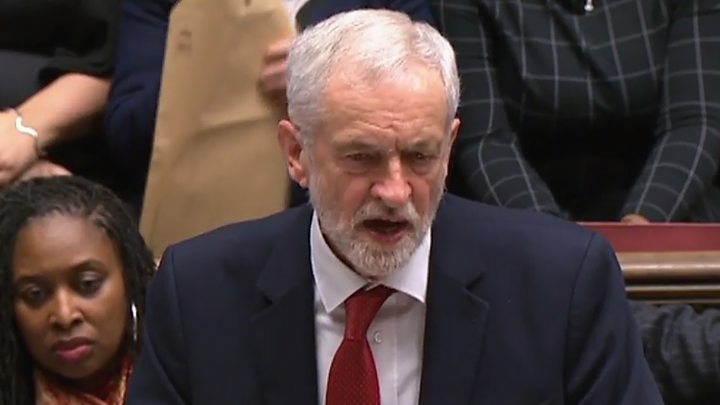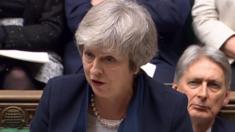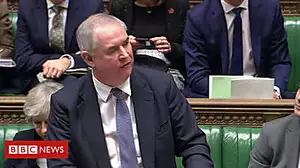Prime Minister Theresa May's Brexit deal has been rejected by 230 votes - the largest defeat for a sitting government in history.
MPs voted by 432 votes to 202 to reject the deal, which sets out the terms of Britain's exit from the EU on 29 March.
Labour leader Jeremy Corbyn has now tabled a vote of no confidence in the government, which could trigger a general election.
Mrs May said she would make time for a debate on the motion on Wednesday.
- LIVE: Reaction to May's defeat
- Pound regains ground after Brexit vote
- Reality Check: What are the biggest government defeats?
Mr Corbyn said the confidence vote would allow the Commons to "give its verdict on the sheer incompetence of this government".
A Democratic Unionist Party source has told the BBC's Laura Kuenssberg they will back Mrs May in a confidence vote.
If MPs vote to back a no confidence motion, the government, or anyone else who can command a majority, would get 14 days to win a further confidence vote. If they can't win that, a general election will be then held.
Some 118 Conservative MPs voted with the opposition parties against Mrs May's deal.

In normal times, such a crushing defeat on a key piece of government legislation would be expected to be followed by a prime ministerial resignation.
But Mrs May signalled her intention to carry on in a statement immediately after the vote.
"The House has spoken and this government will listen," she told MPs.
She offered cross-party talks to determine a way forward on Brexit.
President of the European Council, Donald Tusk, said he regretted the outcome of the vote and that he urged the UK government to "clarify its intentions with respect to its next steps as soon as possible".
UK Politics
Brexit: A really simple guide
- 15 January 2019
- UK
What time is the vote on May's Brexit deal?
- 15 January 2019
- UK Politics



















No comments:
Post a Comment